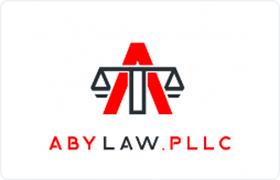Richland Criminal Lawyer, Mississippi, page 2
Sponsored Law Firm
-
 x
x

Click For More Info:
-
Abby Law, PLLC
403 B Towne Center Blvd Suite 102 Ridgeland, MS 39157» view mapCriminal Defense Law Get the Legal Support You Need
If you need an experienced litigation attorney, look no further than Aby Law, PLLC. We are a trusted general practice law firm in Ridgeland, MS.
800-953-2840
Bryant Donlevy Guy
Accident & Injury, Bankruptcy, Criminal, Divorce & Family Law
Status: In Good Standing Licensed: 25 Years
Drew M Martin
Immigration, Wills & Probate, Criminal, Accident & Injury
Status: In Good Standing Licensed: 21 Years
 Heather Aby Ridgeland, MS
Heather Aby Ridgeland, MS Practice AreasExpertise
Practice AreasExpertise
